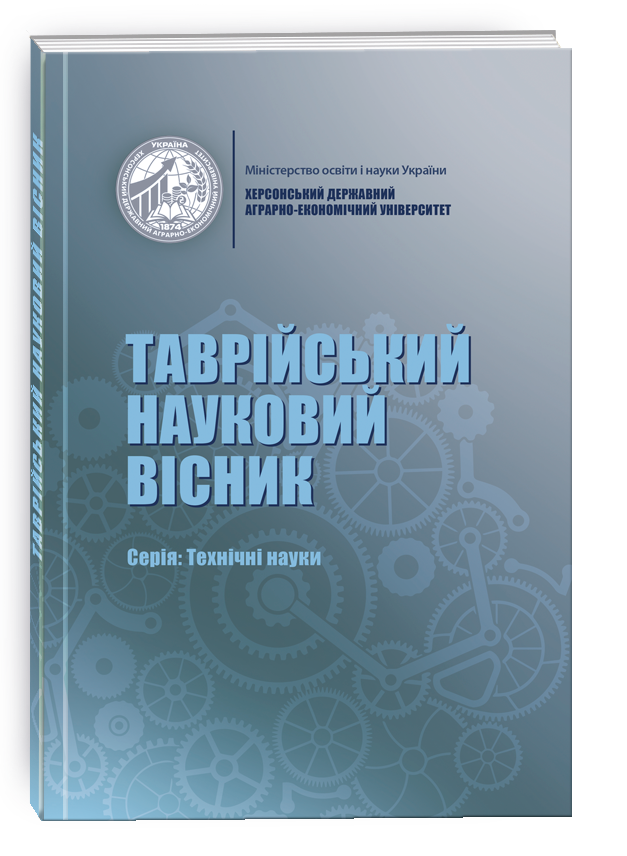DEVELOPMENT OF A CONDENSING BOILER MODEL BASED ON MACHINE LEARNING METHODS FOR BUILDING A DIGITAL TWIN
DOI:
https://doi.org/10.32782/tnv-tech.2024.2.3Keywords:
condensing boiler, modeling, regression model, machine learning, digital twinAbstract
The article deals with the development of a regression model of a condensing boiler as one of the components of a digital twin of the heat supply system. The efficiency of a condensing boiler can reach 96%, but it directly depends on the consumer of thermal energy, namely on the temperature of the return coolant. The efficient operation of the condensing boiler takes place only when using low-temperature heat supply systems for buildings with appropriate thermal characteristics. To ensure these characteristics, it is necessary to have an intelligent control system. The system must monitor a set of parameters and limitations, such as coolant temperatures, fuel consumption, composition of flue gases, condition of structural materials, condensate level, etc. The digital twin of the condensing boiler must integrate control algorithms, models and data to build operating modes in real time. It will ensure the maximum efficiency and resource of the equipment while observing all the necessary operational restrictions. The purpose of the research is to obtain a statistical model using machine learning methods, select and rank a set of model input parameters, train models and analyze their accuracy. The regression model was developed based on the operation data of the condensing boiler during operation. The operating data of the boiler unit, based on which the model was calculated, were collected during its operation, for a period of 30 days. The learning process of the linear regression model was carried out. A set of input data was selected for it and the coefficients were calculated. The input parameters of the boiler are the temperature of the return coolant and the consumption of natural gas. The initial parameters of the boiler are the temperature of the output coolant and flue gases. To simplify the final model, a set of input parameters that have a significant impact on the output parameters was determined. The architecture of the regression tree was calculated. The selected models are united by the ensemble method of "voting". The accuracy of model calculations was evaluated.
References
Національна економічна стратегія 2030 / Платформа Центру економічного відновлення. URL: https://nes2030.org.ua/ (Дата звернення: 30.05.2024).
Патон Б.Є., Долінський А.А., Геєць В.М., Кухар В.П., Басок Б.І., Базєєв Є.Т., Подолець Р.З. Пріоритети Національної стратегії теплозабезпечення населених пунктів України. Вісник НАН України. 2014. № 9. С. 29-47.
Harish Satyavada, Simone Baldi Monitoring energy efficiency of condensing boilers via hybrid firstprinciple modelling and estimation. Energy, vol. 142, 2018, pp. 121-129. URL: https://doi.org/10.1016/j.energy.2017.09.124 (Дата звернення: 30.05.2024).
João Barros, Condenser boiler modeling. URL: https://fenix.tecnico.ulisboa.pt/downloadFile/395144950949/resumo.pdf (Дата звернення: 30.05.2024)
Куделя П. П., Барабаш П. А. Тепловой баланс конденсационных котлов. Енергетика. 2014. № 1. С. 51-59. URL: http://nbuv.gov.ua/UJRN/eete_2014_1_9 (Дата звернення: 30.05.2024)
Malakuti Somayeh, Van Schalkwyk Pieter, Boss Birgit, Sastry Chellury, Runkana Venkataramana, Lin Shi-Wan, Rix Simon, Green Gavin, Baechle Kilian, Nath Shyam. Digital Twins for Industrial Applications. Definition, Business Values, Design Aspects, Standards and Use Cases. An Industrial Internet Consortium White Paper. Version 1.0. 2020. URL: https://www.iiconsortium.org/pdf/IIC_Digital_Twins_Industrial_Apps_White_Paper_2020-02-18.pdf (Дата звернення: 30.05.2024).
Harish Satyavada, Simone Baldi. A Novel Modelling Approach for Condensing Boilers Based on Hybrid Dynamical Systems. Delft Center for Systems and Control. Delft University of Technology. 2016. vol. 4(2), no. 10. URL: https://doi.org/10.3390/machines4020010 (Дата звернення: 22.04.2024).
Dan Teodor Bălănescu, Vlad Mario. Homutescu Experimental investigation on performance of a condensing boiler and economic evaluation in real operating conditions. Applied Thermal Engineering. 2018. Volume 143. p. 48-58. URL: https://doi.org/10.1016/j.applthermaleng.2018.07.082 (Дата звернення: 30.05.2024).
Hanby, V. I. Modelling the performance of condensing boilers. Journal of the Energy Inst. 2007. № 80. p. 229-231.
Дубовой В. М. Ідентифікація та моделювання технологічних об’єктів і систем керування : навчальний посібник. Вінниця : ВНТУ, 2012. 308 с.
Кубрак А. І., Жученко А. І., Кваско М. З. Комп’ютерне моделювання та ідентифікація автоматичних систем. Київ: Політехника, 2004. 424 с.
Жученко А. І. Ідентифікація динамічних характеристик. Комп'ютерні методи. Київ, 2000. 182 с. URL: http://opac.kpi.ua/F/?func=direct&doc_number=000066839&local_base=KPI01 (Дата звернення: 22.04.2024).
Юзвак С.В., Шемчук В.В., Самарін С.В., Косулько А.Г., Лахно В.Г. Модульні котельні установки системи «УКРІНТЕРМ». Довідковий посібник (12-е вид.). УКРІНТЕРМ. Біла Церква, 2019. 171 с.
Machine learning regression algorithms to predict emissions from steam boilers / B. D. Ross-Veitía та ін. Heliyon. 2024. e26892. URL: https://doi.org/10.1016/j.heliyon.2024.e26892 (дата звернення: 02.06.2024).
Afyouni S., Smith S. M., Nichols T. E. Effective degrees of freedom of the Pearson's correlation coefficient under autocorrelation. NeuroImage. 2019. vol. 199. pp. 609–625. URL: https://doi.org/10.1016/j.neuroimage.2019.05.011 (дата звернення: 02.06.2024).
Chou P. A. Optimal partitioning for classification and regression trees. IEEE transactions on pattern analysis and machine intelligence. 1991. Vol. 13, no. 4. pp. 340–354. URL: https://doi.org/10.1109/34.88569 (дата звернення: 02.06.2024).
Carnegie Mellon University, Department of Statistics & Data Science. "Statistics 36-350: Data Mining, Fall 2006." Lecture notes. 2006. Lecture 10 – Regressive trees. URL: https://www.stat.cmu.edu/~cshalizi/350-2006/lecture-10.pdf дата звернення: 30.05.2024).
Liapis C. M., Karanikola A., Kotsiantis S. Data-Efficient software defect prediction: a comparative analysis of active learning-enhanced models and voting ensembles. Information sciences. 2024. no. 120786. URL: https://doi.org/10.1016/j.ins.2024.120786 (дата звернення: 02.06.2024).







